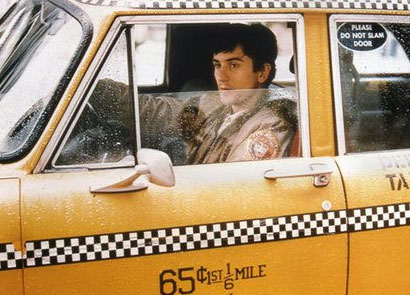By Dennis Hartley
(Originally posted on Digby’s Hullabaloo on May 14, 2011)

Oh, royal houses of Europe…how I adore you. My sexy Saxe-Coburgs, my beloved Bourbons, Bonapartes and Burgundys; my saucy Tudors, Windsors and Romanovs; and I want to give a shout-out to any of you sassy Schleswig-Holstein-Sonderburg-Gluksburgs who may be in da house tonight. How much I love and admire your pomp, your pageantry…and your colorful, endearingly filthy, ever-subservient peasantry. And your rich history-so rife with war, intrigue, and refreshingly unapologetic in-breeding (*sigh*).
For the purposes of this review, we zero in on the French duchies of Guise and Montpensier. In 1570s France, things aren’t going so well on the religious front. Catholics and Huguenots are slaughtering each other like cattle over New Testament bragging rights. This is the backdrop for The Princess of Montpensier, a well-acted and handsomely mounted (but curiously detached) bodice-ripping costume drama from Bertrand Tavernier (‘Round Midnight).
The tale (adapted from Madame de La Fayette’s 17th century short story by Jean Cosmos, Francois-Olivier Rosseau and the director) centers around a fetching young aristocrat named Marie de Mezrieres (Melanie Thierry). Marie has a breathless, Harlequin romance crush on dashing war hero Duke Henri de Guise (Gaspard Ulliel)-and the feeling’s mutual (if yet to be consummated).
Alas, there is a major roadblock straight up ahead for the two lovebirds. Marie’s ambitious father, the Marquis de Mezrieres (Phillipe Magnan) has struck a mutually beneficial backroom deal with the Duke de Montpensier (Michel Vuillermoz) to marry her off with the Duke’s son, the Prince of Montpensier (Gregoire Leprince-Ringuet)-who also happens to be the cousin of Marie’s beloved Henri (following all this so far?).
The Prince and his cousin have been friendly rivals since childhood; but now the hot-headed Henri is seething with resentment about the Prince’s pending marriage to Marie. However, since he shares his cousin’s soldierly sense of duty to wipe out the heretical usurpers, Henri puts Jealousy and Envy on the back burner and channels all that hostility into ministering their common cause (i.e. disemboweling Protestants on the battlefield).
In the meantime, Marie receives sage advice from her mother, the Marquise (Florence Thomassin) to essentially do the same; put the romantic stirrings for Henri aside and focus on her “duty” (i.e. happily submit and learn to love the Prince-like him or no). After an awkward, decidedly un-sexy wedding night, with parents and in-laws holding vigil just outside the doors of the boudoir and then studiously examining the soiled bed sheets immediately afterwards to confirm consummation, the two eventually develop a cautious affection for one another (the Prince more so than his wife).
Of course, Marie and Henri are still struggling with their smoldering desire to jump each other’s bones. Luckily, Marie soon finds a distraction-in the form of a middle-aged gentleman named Comte de Chabannes (Lambert Wilson), who is also the most interesting and complex character in the film. Chabannes, a seasoned soldier and an intellectual, is the Prince’s long-time friend and mentor, who not only schooled the younger man in the art of swordplay, but in the sciences, arts and letters as well.
Chabannes also happens to be a Huguenot-but has declared himself a political neutral in the current conflict, hanging up his scabbard in disgust after having had his fill of wanton killing in the name of God. Eager to groom his Princess for her debut before the Royal Court in Paris, the Prince arranges for Chabannes to tutor her while he is off to war. Before he knows it, the tutor finds himself falling in (unrequited) love with his student.
Tavernier’s effort strongly recalls two films-John Schlesinger’s Far From the Madding Crowd (1967) and Patrice Chereau’s Queen Margot (1994). The former, adapted from Thomas Hardy’s 1874 novel, is set in England, during the much later Victorian age, but features a heroine (portrayed by Julie Christie) who, like the Princess Marie, is headstrong, intelligent and beautiful, and likewise becomes a crazy-making object of desire for three men with disparate personalities (an arrogant young soldier, a wealthy, lovelorn middle-aged landowner and a poor farmer with a heart of gold).
The latter film is quite similar in theme to Tavernier’s on several levels; again featuring a strong female protagonist (Isabelle Adjani, as the sister of France’s King Charles IX) who is forced into an arranged marriage that separates her from her true love and plunges her into the midst of royal intrigue. Chereau’s film is also set against the backdrop of the Catholic-Huguenot wars (both films also re-enact the St. Bartholomew’s Day Massacre).
Unfortunately, The Princess of Montpensier lacks the spark and passion of the aforementioned films . Tavernier gets the period detail right, and his film is gorgeous to look at (thanks to DP Bruno de Keyzer), but something is missing. I don’t fault the cast; it’s the characters’ motivations that elude us. There’s detachment here; it’s like watching ornately carved pieces shuffled about on a chessboard. The film is not unlike Marie herself-an obscure object of desire at once enticingly beautiful and frustratingly unreachable.









